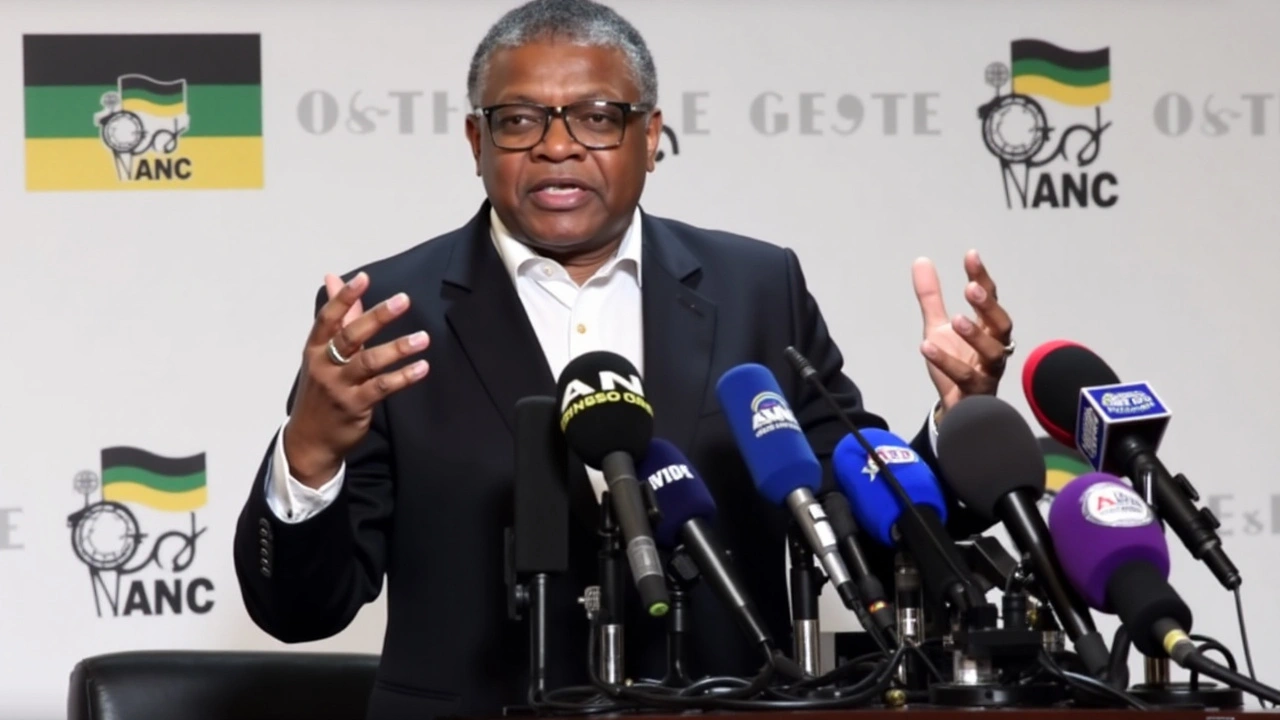Fikile Mbalula Linked to 2027 Presidential Aspirations Amid ANC Meeting Controversy

In Politics
Fikile Mbalula's Ambitions Stir Controversy in ANC Party Meeting
In the realm of South African politics, the African National Congress (ANC) remains one of the most influential parties. However, it seems that internal ambitions and maneuverings could potentially disturb this seasoned party's dynamic. Fikile Mbalula, who currently serves as the ANC's secretary-general, has found himself amidst a whirlwind of controversy and speculation. Accusations have emerged that he has been leveraging his position to foster his personal ambition of becoming the ANC president come 2027. Those who attended a recent meeting, initially convened to chart a strategic course for the 2024 general elections, have cited him for allegedly deviating the agreed agenda to promote his leadership prospects.
Claims Against Mbalula's Conduct
Multiple sources present at the meeting have reported that Mbalula took advantage of the platform not to concentrate on the impending elections that are pivotal for the ANC but to instead render himself visible as a potential torchbearer for the presidential title in 2027. This alleged attempt to self-promote caught many by surprise and left attendees questioning the motives behind Mbalula's role during a critical time for the party. Such actions, as suggested by insiders, unveil his strategic gears are already commencing their cycle, with a decisive eye on the distant yet consequential 2027 national conference.
Official Responses and Party Dynamics
Confronted with these accusations, Mbalula, through his spokesperson, vehemently denied any malpractice. They contended that his spoken agenda was misconstrued, arguing that his comments were purely directed at the party's forward-looking plans, inclusive of, but not exclusive to, the elections down the road. Despite these assurances, the controversy has sparked concern among ANC members. Some see Mbalula's actions as a diplomatic misstep that could splinter party cohesiveness at a time when unity is paramount, especially under the leadership of President Cyril Ramaphosa, to whom Mbalula's loyalty is being questioned.
Potential Impact on ANC's Future
The jostling for positions within the ANC has seemingly started long before the official campaigns might open, leaving party stalwarts and confidants apprehensive about potential fractions forming within the ranks. The ANC is a party steeped in history and tradition, one that has held the reins of South African politics for decades. Yet, such events highlight vulnerabilities within its structure—vulnerabilities that opposition parties might seize upon if strategic unity falters. With other contenders undoubtedly observing and potentially preparing their own campaigns, Mbalula’s move may be seen as setting a precedent for competitive positioning far ahead of schedule.
Upcoming Party Discussions and Concerns
In light of these allegations, the ANC's national executive committee is anticipated to reconvene shortly, where Mbalula's actions will likely be a point of heated discussion. This meeting could prove pivotal not only in terms of policy-making for the looming 2024 elections but also for determining the equilibrium necessary to maintain cohesion within the party. Many members are calling for transparency and focused dedication towards party goals rather than individual ambitions, to ensure consistent policy development and public confidence.
Mbalula’s Path Within the ANC
Since assuming the role of secretary-general in 2022, Fikile Mbalula has been acknowledged as an influential figure, instrumental in the ANC’s recent efforts to consolidate and rejuvenate its operational mandate. His efforts in recent years were celebrated for aligning the party with reformative ventures and a unified vision. However, this current allegation presents a possible deviation from that narrative, raising questions about his true priorities and commitment.
The Political Road to 2027
While the ANC's 2027 national conference remains several years away, the landscape of South Africa's political arena can shift dramatically in that time. Candidates within the ANC must manage internal politics skillfully, ensuring their vision aligns with the party’s overarching goals. Mbalula's apparent maneuver could merely be an early move in a complex chess game of thorough party maneuvers and strategies, observed with keen interest by political analysts and opposition members alike.
Final Thoughts on the Mbalula Controversy
Ultimately, this situation underscores the importance of maintaining a balance between personal ambition and collective party responsibilities. As the ANC navigates toward the next election cycle, the way it handles such controversies may define its trajectory. While Mbalula's spokesperson may have downplayed the situation, the broader implications of this alleged conduct could have lasting impacts on his political career and the ANC's leadership dynamics, proving once again that in politics, perceptions often shape realities.
Write a comment